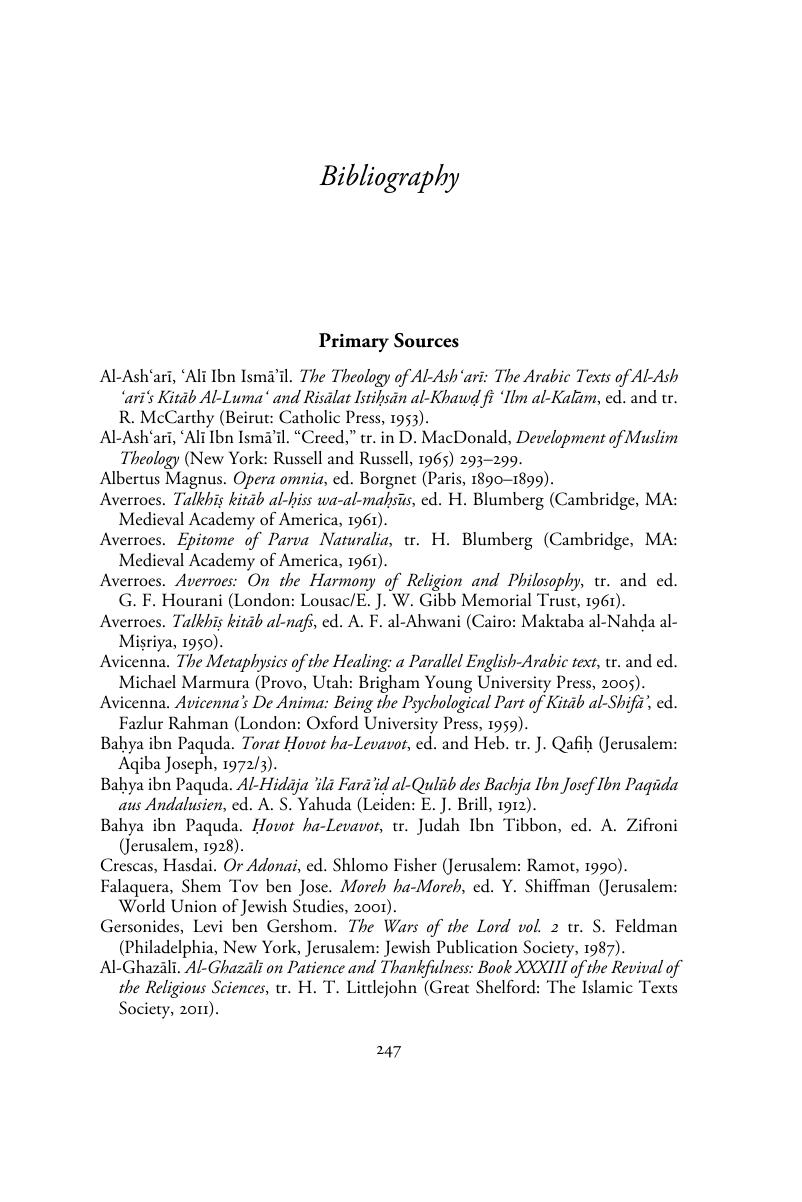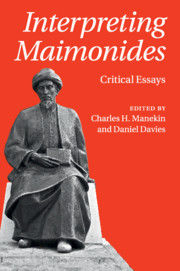Book contents
- Interpreting Maimonides
- Interpreting Maimonides
- Copyright page
- Contents
- Tables
- Contributors
- Acknowledgments
- Note on the Text
- Introduction
- Chapter 1 Maimonides and the Almohads
- Chapter 2 Al-Ghazālī’s Purported “Influence” on Maimonides
- Chapter 3 Maimonides on the Intellects of Women and Gentiles
- Chapter 4 What the Guide of the Perplexed Is Really About
- Chapter 5 On or above the Ladder? Maimonidean and anti-Maimonidean Readings of Jacob’s Ladder
- Chapter 6 Reading the Guide of the Perplexed as an Intellectual Challenge
- Chapter 7 Jewish Ritual as Trial in the Guide of the Perplexed
- Chapter 8 Maimonides on the Divine Authorship of the Law*
- Chapter 9 Divine Knowledge and Providence in the Guide of the Perplexed
- Chapter 10 The World and the Eye: Perplexity about Ends in the Guide of the Perplexed iii.13 and iii.25
- Chapter 11 Early Quotations from Maimonides’s Guide of the Perplexed in the Latin Middle Ages
- Chapter 12 The Agendas of Shlomo Pines for Reading the Guide of the Perplexed from 1963 to 1979*
- Chapter 13 How to Begin to Study Strauss’s “How to Begin to Study the Guide of the Perplexed”*
- Bibliography
- Index
- References
Bibliography
Published online by Cambridge University Press: 03 December 2018
- Interpreting Maimonides
- Interpreting Maimonides
- Copyright page
- Contents
- Tables
- Contributors
- Acknowledgments
- Note on the Text
- Introduction
- Chapter 1 Maimonides and the Almohads
- Chapter 2 Al-Ghazālī’s Purported “Influence” on Maimonides
- Chapter 3 Maimonides on the Intellects of Women and Gentiles
- Chapter 4 What the Guide of the Perplexed Is Really About
- Chapter 5 On or above the Ladder? Maimonidean and anti-Maimonidean Readings of Jacob’s Ladder
- Chapter 6 Reading the Guide of the Perplexed as an Intellectual Challenge
- Chapter 7 Jewish Ritual as Trial in the Guide of the Perplexed
- Chapter 8 Maimonides on the Divine Authorship of the Law*
- Chapter 9 Divine Knowledge and Providence in the Guide of the Perplexed
- Chapter 10 The World and the Eye: Perplexity about Ends in the Guide of the Perplexed iii.13 and iii.25
- Chapter 11 Early Quotations from Maimonides’s Guide of the Perplexed in the Latin Middle Ages
- Chapter 12 The Agendas of Shlomo Pines for Reading the Guide of the Perplexed from 1963 to 1979*
- Chapter 13 How to Begin to Study Strauss’s “How to Begin to Study the Guide of the Perplexed”*
- Bibliography
- Index
- References
Summary

- Type
- Chapter
- Information
- Interpreting MaimonidesCritical Essays, pp. 247 - 262Publisher: Cambridge University PressPrint publication year: 2018



